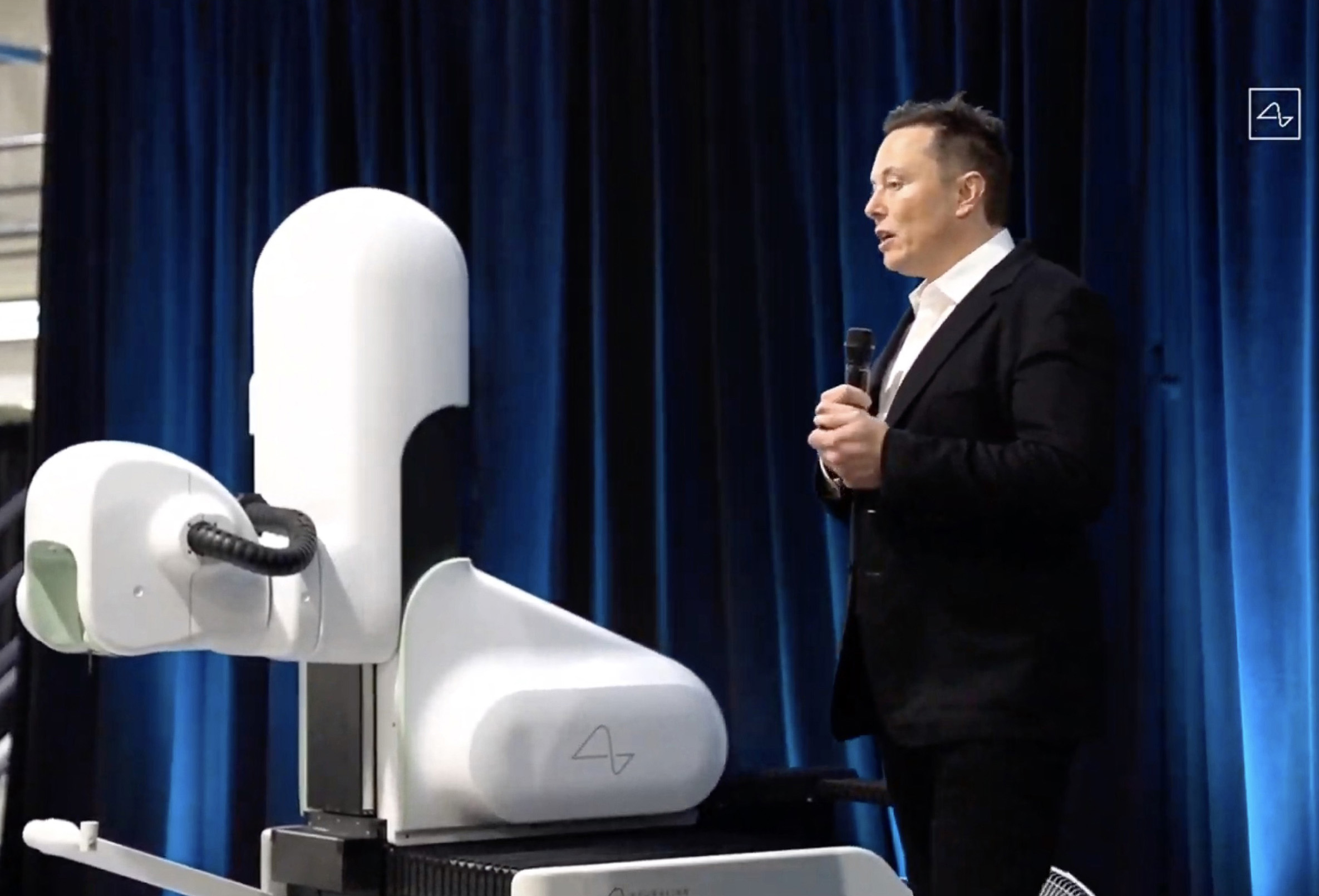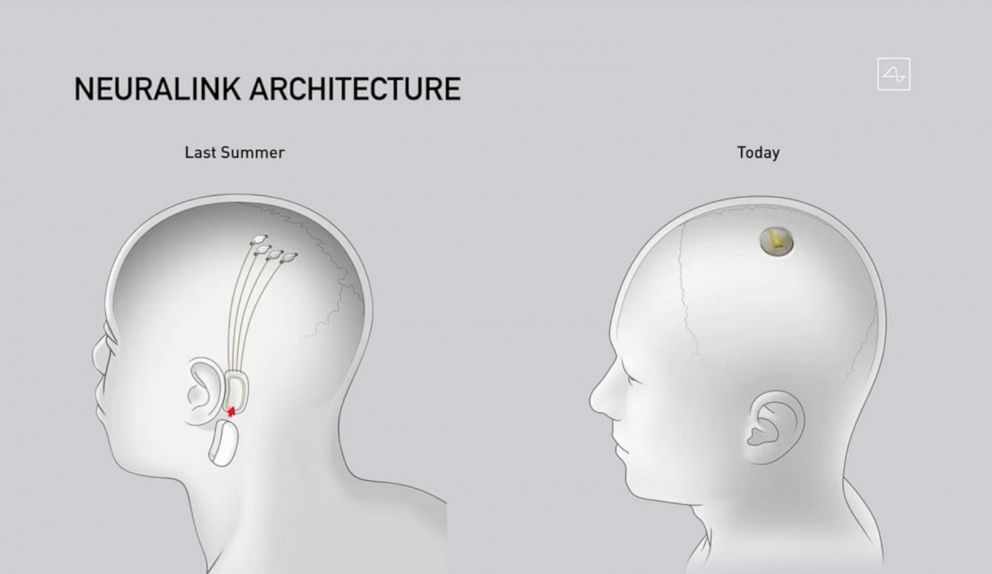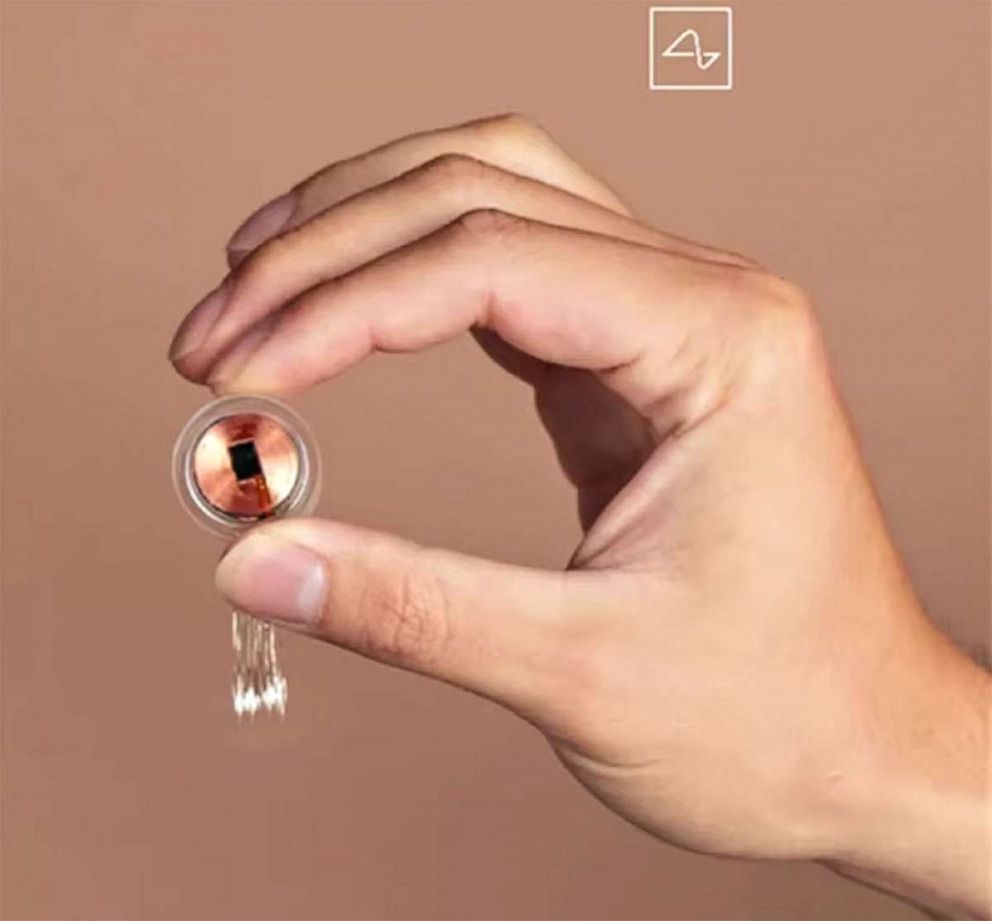Elon Musk unveils brain chip implant: 'It's like a Fitbit in your skull'
The coin-sized device could help a paralyzed person operate technology.
Tech mogul Elon Musk unveiled his latest foray into science fiction Friday night: a brain chip implant to allow people who are paralyzed to operate technology, such as smartphones or robotic limbs, with their thoughts.
"I think it's going to blow your minds," Musk said. "It's like a Fitbit in your skull with tiny wires."
But the coin-sized chips, developed by Musk's secretive startup Neuralink, are a ways off from being useful to humans. Friday's livestreamed YouTube demonstration was on a pig named Gertrude, who Musk said had a brain chip implanted two months earlier.

As the pig shuffled around its pen sniffing hay, a computer beeped and blue wavelengths on the screen jumped up and down. Musk said the computer was measuring Gertrude's brain activity. "The beeps you are hearing are real-time signals," he said. "The future's going to be weird."

But the "move fast and break things" ethos that defines Silicon Valley has not always been kind to inventors who try their luck in bio technology. Medical innovation is notoriously slow. Conducting clinical trials to prove the safety and efficacy of medical devices can take years.

Perhaps the most notorious example of the tension between innovation and safety is blood diagnostics startup Theranos and its founder, Elizabeth Holmes. In a rush to get her product to market, Holmes took shortcuts and made exaggerated and false claims about her company's technology, according to the U.S. Securities and Exchange Commission, which charged Holmes with raising money from investors in an "elaborate, years-long fraud." Holmes now faces up to 20 years in prison.
Musk nodded to the regulatory hurdles that Neuralink must clear on Friday. "We're making good progress toward clinical studies," he said. "I'm excited to announce that we received a breakthrough device designation from the FDA in July."
"I want to be clear," he continued. "We're working closely with the FDA. We'll be extremely rigorous. We'll significantly exceed the FDA guidelines for safety. We will make this as safe as possible."
Musk's track record on safety and science has been mixed.
The recent successes of SpaceX came after federal regulators examined fatal crashes linked to autopilot systems in Teslas.
In March, Musk dismissed the seriousness of COVID-19, claiming on Twitter that there would probably be close to zero new infections in the U.S. by the end of April. In May, Musk defied local stay-at-home orders and opened his California car factory in the midst of a pandemic.
As of late August, infections in the U.S. had topped 5.9 million and deaths had exceeded 182,000.